Number of daily fruit servings
2 cups
Vitamin that supports eye health
Vitamin A
This nutrient is essential for the growth and maintenance of body tissue.
Protein
A situation that occurs when micro-organisms, allergens, chemicals or other hazards that are carried by utensils, hands, towels or other food are transferred from one food, ingredient or surface to another.
Cross Contamination
Number of Servings
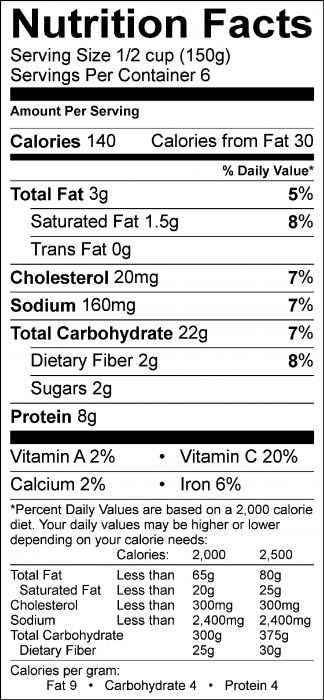
6
Number of daily vegetable servings
2.5 cups
Vitamin that is necessary for growth and a strong immune system
Vitamin C
Provide energy, store certain vitamins such as A,E,D & K
Fats
Never Cut toward yourself
Use sharp Knives
Never leave knives in the sink are examples of what safety practice
Knife Safety
Vitamins and Minerals in the recipe
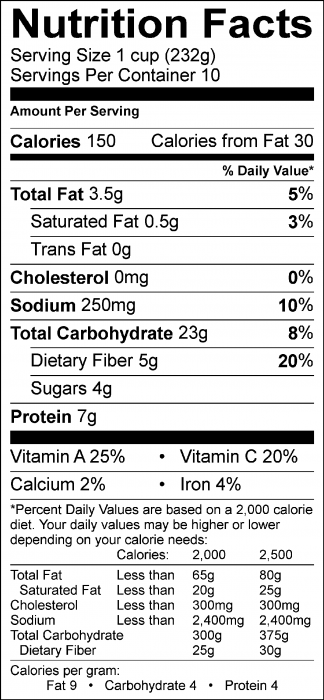
Vitamin A, C
Calcium & Iron
Number of daily dairy servings
3 cups
A mineral that helps build strong bones and prevents osteoporosis
Calcium
What nutrient is most common in potatoes
Carbohydrates (starch)
Something that can be done throughout the cooking process to prevent contamination
Washing hands and/ or changing gloves
Calories from fat per serving
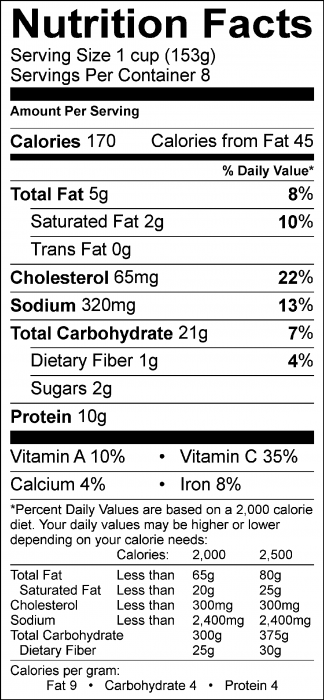
45
Number of daily protein servings
5.5 oz
Mineral that helps maintain healthy red blood cells
Iron
Sugar is an example of what Nutrient
Carbohydrates
Above 135 F
Number of Cups this recipe makes
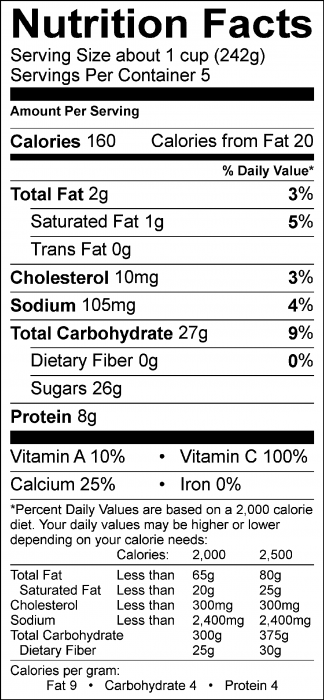
5 cups
Number of daily grain servings
6 oz
Vitamin that impacts energy levels, helps brain function and prevents infections
Vitamin B
Fiber is an example of what Nutrient
Carbohydrate
Cold Foods Should Be Kept
Below 41 F
Highest Nutrient
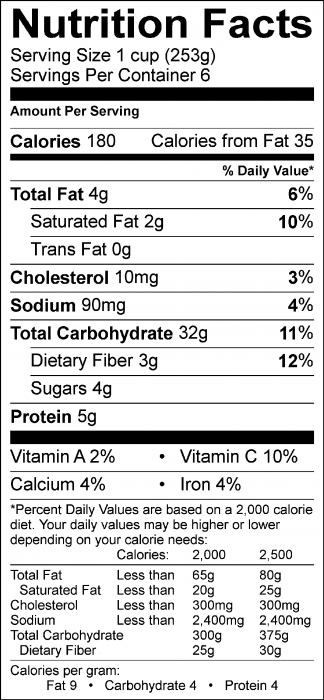
Carbohydrates